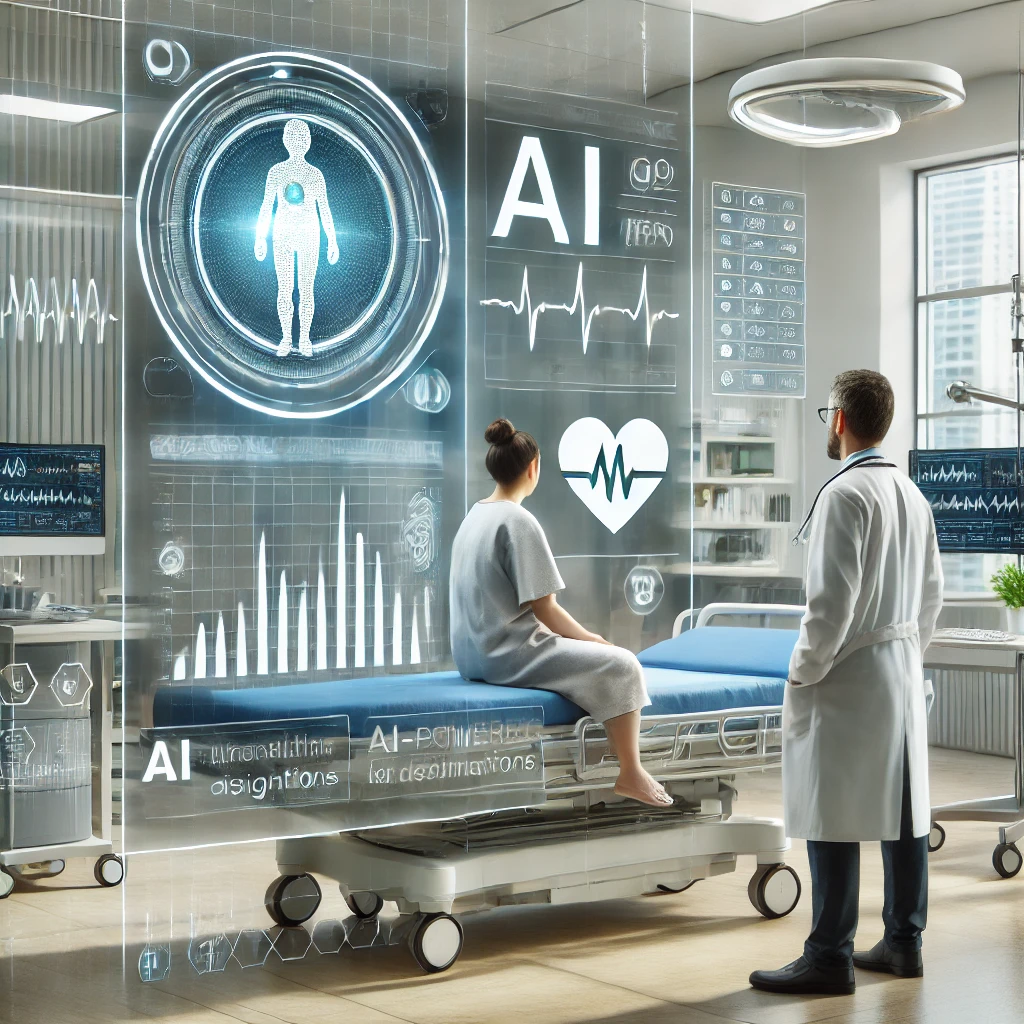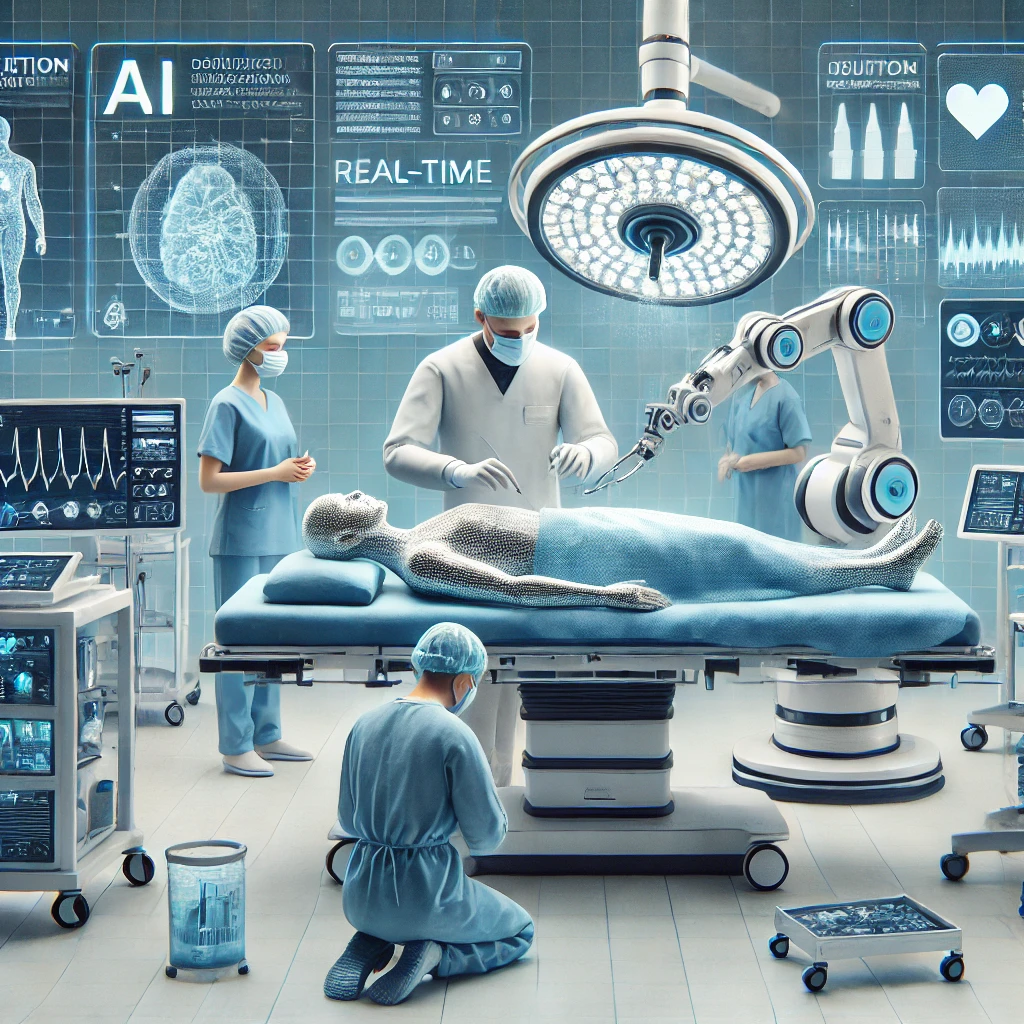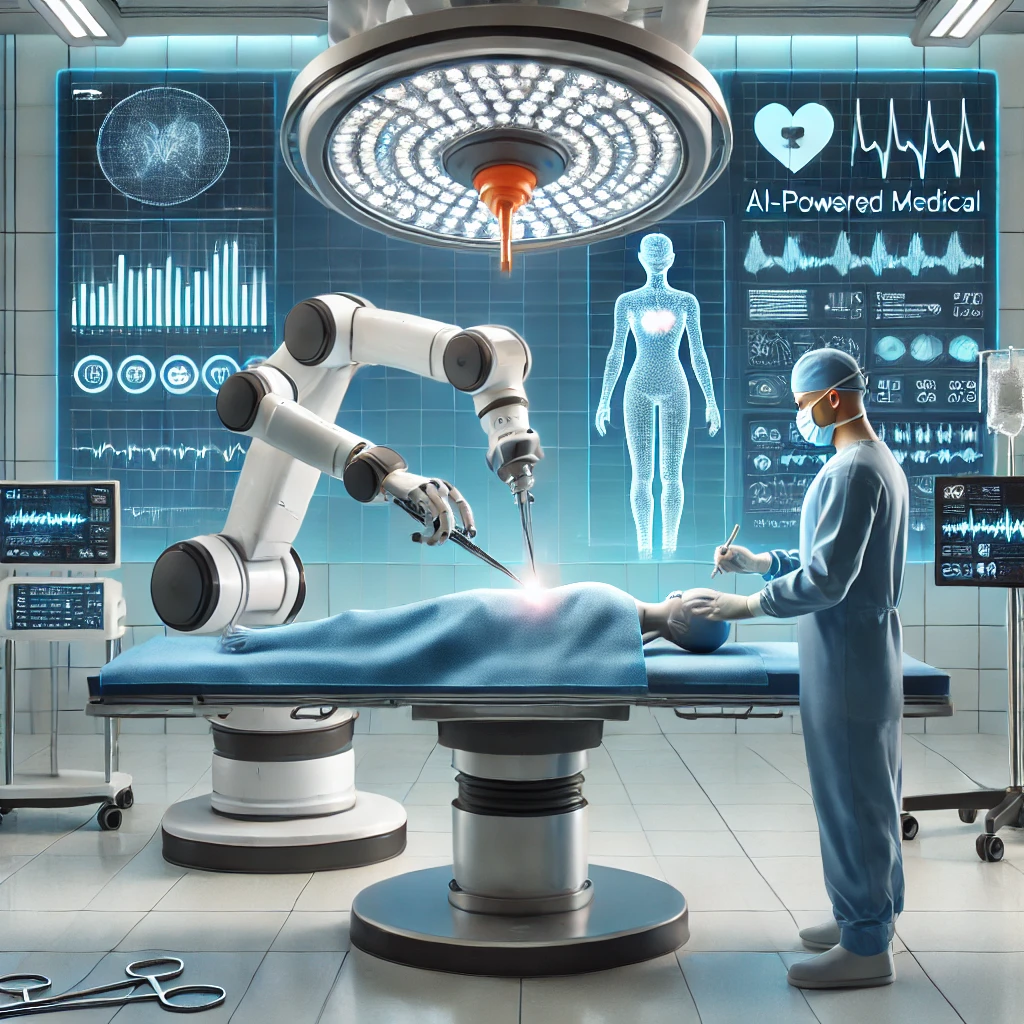Revolutionizing Healthcare: The Power of AI in Medical Innovation
Introduction:…………………………………………………
.
The Dawn of AI in Healthcare.
AI is not just a science-fiction idea; it is revolutionizing industries at a rapid pace, with the healthcare sector leading the way.
AI’s application in healthcare has the ability to completely change the field of medicine, from improving disease diagnosis to expediting patient care.
We’ll explore how artificial intelligence (AI) is revolutionizing healthcare in this blog post, and why that matters to all of us.
1. AI in Medical Diagnostics: A Game-Changer.
Historically, medical diagnoses have depended on human skill, which is prone to delays and errors. AI programs, such as IBM Watson Health, are transforming this procedure. Large volumes of medical data can be quickly scanned and analyzed by these AI systems, which can also spot trends that even highly skilled medical professionals might overlook.
As a result, diseases like cancer, heart disease, and neurological illnesses are diagnosed earlier and with greater accuracy.
Principal Advantages of AI in Diagnostics.
- More rapid and precise identification of diseases.
- Tailored regimens.
- A decrease in human error during the diagnostic procedure.

2. AI-Powered Robots: Enhancing Surgical Precision.
Surgeons are being assisted in delicate surgeries by AI-driven surgical robots. These robots, which include the Da Vinci Surgical System, offer previously unheard-of precision, which lowers risks and speeds up healing. These systems learn from each surgery through machine learning, which enhances their effectiveness and results.
3. AI in Drug Discovery: Speeding Up Innovation.
Creating new medications takes a lot of money and time.
Because AI can predict how various substances will behave in the human body, drug research is accelerated.
AI is being used by businesses like Insilco Medicine to expedite the delivery of life-saving therapies to patients while saving billions of dollars in research and development expenses.
4. Personalized Medicine: AI Tailoring Treatments to Individual Needs.
Personalized medicine is among the most promising uses of AI in healthcare. AI is able to develop individualized treatment programs that are significantly more successful than one-size-fits-all approaches by evaluating patient data, including genetic composition, lifestyle, and medical history.
This precision medicine approach is especially helpful in the treatment of complex illnesses such as cancer, where highly tailored medicines are required.
5. AI in Healthcare Management: Streamlining Operations.
AI is transforming the operational side of healthcare in ways that go beyond clinical applications.
AI-powered solutions are being used by hospitals to optimize resource allocation, forecast patient admission rates, and manage staff. Better patient care and more efficient operations are the results of these upgrades.
6. AI and Telemedicine: The Future of Remote Healthcare.
Chatbots and virtual assistants driven by artificial intelligence (AI) may arrange appointments, offer medical advice, and assess patients.
This eases the load for medical staff and increases patient accessibility, particularly for those living in rural locations.
7. Challenges and Ethical Considerations.
AI has a lot of potential for the healthcare industry, but it also presents ethical concerns. It is necessary to address concerns about patient privacy, data security, and the possibility of bias in AI.
In order to ensure that AI benefits all patients equally, it is imperative that the technology be used appropriately.

Conclusion: The Future of AI in Healthcare.
The application of AI in healthcare is already revolutionizing illness diagnosis, treatment, and management. The potential is endless as technology advances. But great power also comes with great responsibility, therefore the healthcare sector needs to keep concentrating on applying AI in ways that are advantageous to all.

